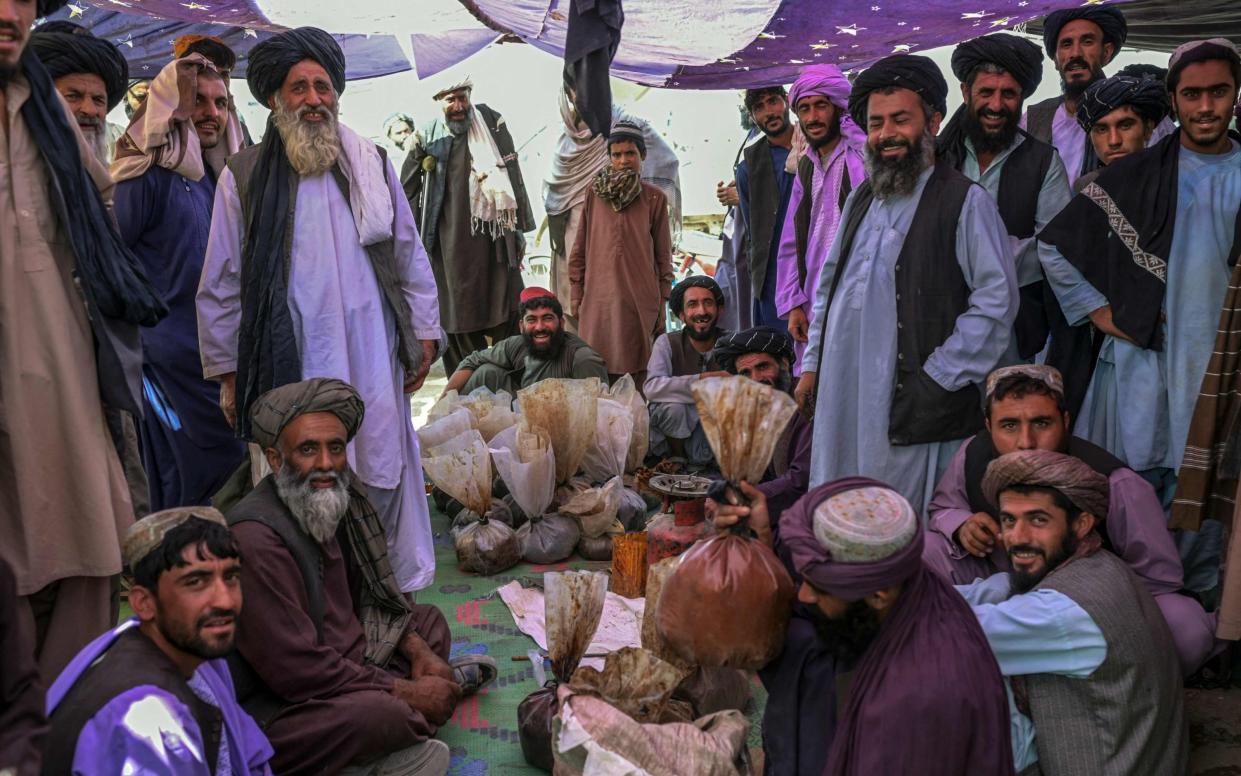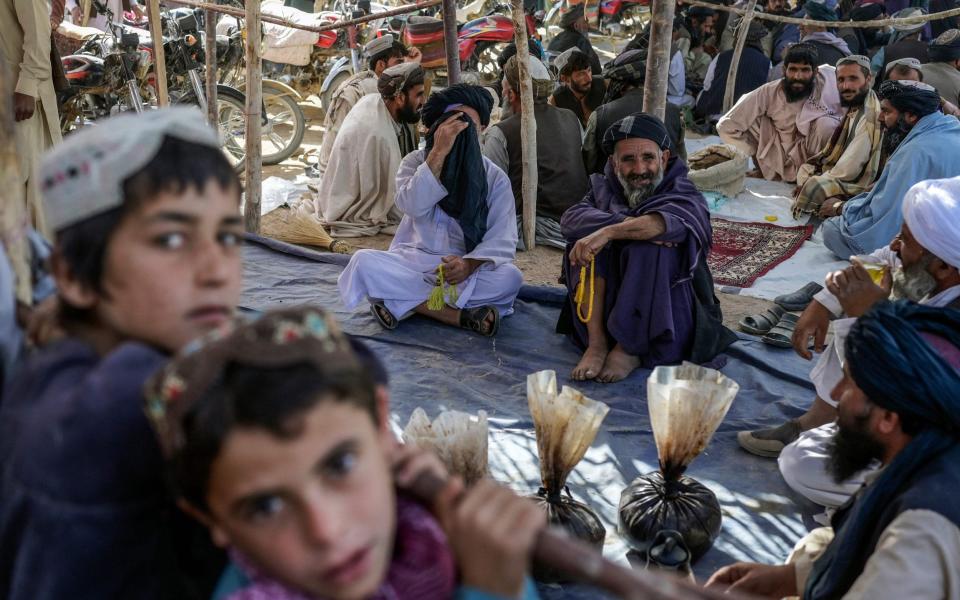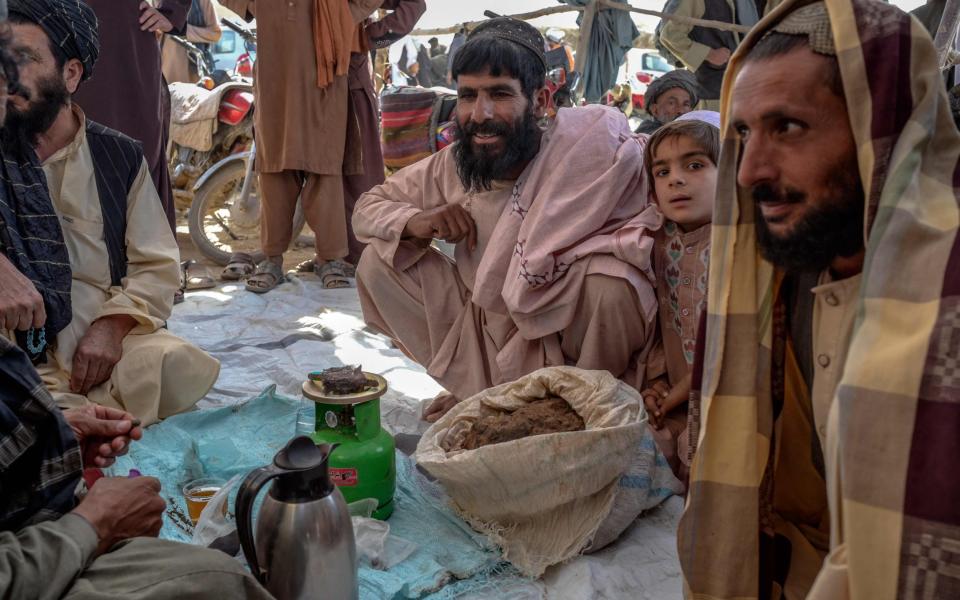Business as usual for Afghan opium trade as Taliban ban goes up in smoke

The sacks full of thick, brown opium paste give off a distinctive smell as turbaned traders and farmers haggle over prices.
The opium being freely bought and sold in the drug bazaars of southern Afghanistan will soon make its way as heroin into the country's neighbours and then into the world beyond.
It is a trade which, a month ago, the Taliban said they would stamp out in a repeat of a ban imposed under their 1990s regime.
Opium growers in Helmand told The Telegraph they were again preparing to plant fields full of poppies, with the Islamist group having so far stalled on implementing a ban – one of a number of promises that appeared designed to please the West and have since been broken.
Prices spiked after Afghanistan's militant rulers used one of their first press conferences to announce that they would halt the business, which provides more than 90 per cent of the heroin in the UK. But they have fallen back after growers said they had received no such order and were preparing to carry on as normal.
One trader in Nowzad district, who declined to be named, said business in the provinces' opium bazaars was proceeding unhindered. "The trade in opium is free and everyone can buy and sell without threat," he said.
He said prices jumped from £57 per kilo to £78 amid uncertainty about production after the Taliban took power in mid-August but were now back down to around £60.


Afghanistan is by far the world's largest opium supplier and is estimated to produce four-fifths of global supply. The drug accounts for 11 per cent of the Afghan economy, the United Nations estimated in 2018.
Production grew year-by-year even as the international community poured millions of pounds into counter-narcotics efforts during their two decades in Afghanistan.
A farmer called Mohammad Gul, in Marjah, said he planned to plant an acre of opium and knew hundreds of farmers who were preparing to do something similar. While the trade brings in huge sums for some kingpins, many farmers scrape by but have little other way to make a living. Any Taliban move to halt the trade would probably face stiff resistance.
"No ban has been announced by the current government," he said. "People are in a bad economic situation and would not agree with a government ban this season. We don't have any other way to get money."
Jan Mohammad, a farmer from Nad-e-Ali district, said he was planning to sow three acres when the planting season begins in a month, adding: "Without opium, we cannot get good returns from our land.
"If the Taliban wants to ban poppy cultivation, we want them to make a good government and prepare economic growth jobs and everything. If they can't do that, we will grow opium."
Protect yourself and your family by learning more about Global Health Security

 Yahoo News
Yahoo News 
